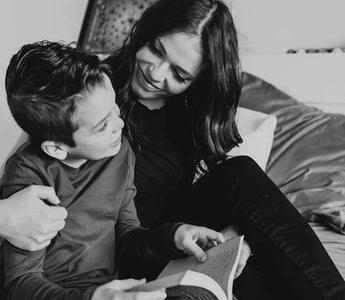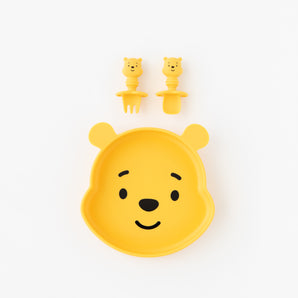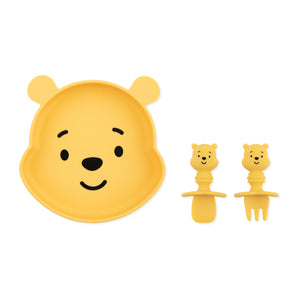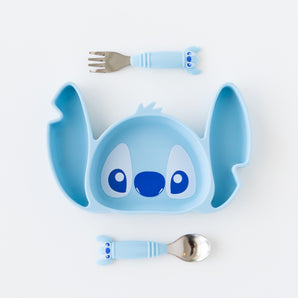We often hear how difficult it is to get babies to sleep restfully. With so many mixed messages, we decided to ask a pro. We talked with Carrie Bruno, a registered nurse, IBCLC lactation consultant, and sleep coach.
She started the @the.mama.coach six years ago with a group of registered nurses across North America to help families with sleep through the lens of a health professional.
Carrie shared many great tips and eye-opening factoids with us, covering everything from age-specific bedtimes to staging your baby's room for more restful sleep. We learned so much we wanted to share some of the highlights with you!
Check out our full chat on IG Live.
The burning question. When do babies sleep through the night?
Carrie says a quick internet search will bring up all kinds of answers to this popular question. While babies typically begin sleeping through the night at around the six-month mark, she says there is no magic age.
"It's really about teaching your baby to feed when she's hungry and sleep when she's tired, and that's what gets a baby to sleep through the night. I see babies do it all the time, way younger than six months, but around the six-month mark, babies are ready for those long stretches of consolidated sleep, of course, taking into account ensuring they're feeding well."
Why do babies cry or kick in their sleep? Newborns don't sleep like the rest of us.
"So, this is where things get super interesting because when babies are first born, they don't sleep like we do — Adults and babies, even like three, four months, and beyond go through stage one, stage two, stage three, and REM sleep. Newborns spend half their time in active sleep, and this looks like grunting, snorting, kicking, and they almost look like they're gassy while they're sleeping."
She says they spend the other half their time in quiet sleep. So, since they need to feed around the clock, it's hard for newborns to get into a deep sleep.
And forget what you read on the Internet. Newborns don't need to be in bed by 7.
Carrie says it is developmentally appropriate for newborns to wake every three to four hours around the clock, but that doesn't mean they need to go to bed when an older infant or toddler does.
Her favorite tip to give newborn mothers is to avoid putting their baby to bed too early. That can often make a difficult evening even more challenging as the baby becomes overtired.
"Don't try to put her down till around 10 or 11 at night. Set yourself up a little station with water and snacks, and Netflix. Keep your newborn with you, skin to skin. Let her cluster feed or fill a bottle, and then put her down around 10 or 11. And she will have a substantially better night than if you try at 7:30, which is when we think. All over the Internet, it says that's when babies go to bed, which is true, but not till closer to four or five months of age."
A longer feed does not equal longer sleep.
Of course, feeding will be routine because that's an essential step in the bedtime routine, but Carrie says Moms often get nervous when that feed is short. In this case, Carrie says babies usually stay at the breast or longer at the bottle when sometimes what they need at bedtime is the shortest feed of the day.
How & when can you start sleep training? Watch for feeding cues as they "climb up the mountain."
As you move past the newborn stage, there are signs you can look for to begin easing the baby into a more restful sleep, around the 3 to the 4-month mark.
"And so really that is about watching for big sucks and swallows and essentially when sucking slows or when they slow on the bottle, whether it's breast or bottle, end the feed. You can encourage them to keep drinking a few times, but if they continue to get sleepy, if you end the feed and then put them down, that's what you'll see longer stretches happen."
Carrie and her team teach mamas to read baby's cues in addition to time checks, describing the period when babies are falling asleep as the sometimes difficult "mountain peak."
'So, this is night one when we're just starting, for example. And so what happens is baby is going to climb up the mountain, in terms of being frustrated, because this is new, right?'
Bedtime is the "golden ticket."
Carrie says bedtime is the "golden ticket of sleep "if you're past the newborn mark and looking for a place to start. And it's backed by science — baby's sleepy time hormones are higher at bedtime.
"Your babies, and this goes for newborns too, need between 12 and 13 hours of daytime. And that's inclusive of naps. They need 11 to 12 hours of night. Just that simple piece of your schedule can make a huge difference.
She uses the example of a four-month-old baby waking up at 7 AM, taking naps throughout the day with a bedtime between seven and eight.
Short naps are hard on parents but completely normal. And there's no shame in a nap on the go.
"We need to think about mom too. It's really stressful to put your baby down for a nap, have her sleep for 23 minutes, and then what? It won't be that way forever, but it's developmentally very normal for naps to be short. Newborns take pretty good naps, but then around three or four months naps shorten again, and then they are inconsistent till around them six-month mark."
Carrie says the Internet will tell you all sorts of things about how to deepen a baby's sleep, shaming moms for not having your baby in the crib all day, but if it's a lovely spring day, she says it's okay to get your baby outside. At the Mama Coach, they call these daytime Zzzs "naps on the go," and they can even aid nighttime sleep.
You want baby's sleep space to be boring.
While she has seen many beautiful nurseries with great mobiles, Carrie says this can stimulate babies during sleep time. She encourages caregivers to move these things over to the changing pad or somewhere else away from the crib.
A dark room can encourage melatonin.
When prepping the room for a good sleep, she says complete darkness is the first step in facilitating better sleep.
"When it comes to older infants, a baby starts secreting melatonin around that eight to 10 week of age mark, and that's when babies get tired. That's our tired evening hormone. And so if you can close the blinds around six-thirty, seven o'clock just to encourage the brain to understand that nighttime's coming and those melatonin levels to rise, that can really help with bedtime. And it can help with naps that are happening at home. A dark room makes a big difference."
White Noise: Distance, Loudness, and Consistency Matter
White noise is also important, but Carrie warns that you make sure it's no louder than 50 decibels and at least a meter away from your baby's ears to protect their hearing.
If you're wondering, how do I count decibels? There are free apps that you can download on your phone to help you gauge.
The other important thing to note about white noise is that it should be constant. While there are many options like crashing waves or lullabies, Carrie says the sleep environment should not be stimulating.
"We're supposed to come to the surface of sleep, which happens to us all four to six times a night. And then we'll roll over and start again — but if thunders crashing or there are variants in that sound, that can wake us from sleep."
Massage Might Lower Cortisol and Help Your Baby Sleep Better
Research supports massage in babies (not newborns) younger than six months of age.
"— if we incorporate bedtime massage, like with lotion after their bath, that can actually decrease cortisol levels, which is the stress hormone that we secrete throughout the day, which keeps us awake — So feed, bath, massage, jammies, book or song, and then into bed, and the whole routine itself would take around 30 minutes."
Carrie also took the time to answer some of other questions from the Bumkins community. Here's what else we learned:
"Power pump" to build your milk supply.
If you are supplementing at all, Carrie also recommends pumping. And another thing to look into is incorporating a power pumping session a couple of times a week.
She has the directions on her website: it's essentially 20 minutes on 10 minutes off, 10 minutes on 10 minutes off, 10 minutes on. It's like a workout breast pump workout. It can simulate a growth spurt, and it can help with the milk supply.
Why your baby might be spitting out a soother and how to help.

Carrie says we often put soothers on the baby's tongue and then in their mouth, but new babies, about 4 to 6 months of age, have what's called a tongue thrust reflex to prevent them from choking.
"So, if you put anything on their tongue, they spit it out, and they are meant to do that. And so instead of this — touch it to their lip and have them give consent for you to put something in their mouth, and then I want you to shoot it, aim it towards their hard palate. So the top of the roof of their mouth meets their soft palate because that spot elicits the sucking reflex. And so when you're offering the soother shoot upwards, instead of just straight onto their tongue.
Why your nine-month-old might be fighting sleep and waking up in the night.
"Nine months is such an incredible time for infant development. Their brains are going a hundred miles a minute, and sleep is really impacted around nine, 10, 11 months of age. And the other thing that happens is separation anxiety. They learn when mom leaves the room, she's just on the other side, and then that can cause a lot of crying as well."
But Carrie says you have some options:
- The first goes back to that bedtime routine, moving the feed earlier because that might be all the baby needs to stay asleep longer.
- Her next tip is about middle-of-the-night feeds. She says, at this age, if it stresses you out, you don't have to drop them altogether, but you could use some of those effective principles — monitoring baby for those big sucks and swallows. As soon as they get tired, end the feed, change their diaper, and put them back to bed.
"That extra step between ending the feed, changing her bum, putting her back in the crib will be enough for her to be like, huh, like I'm not really hungry. That didn't really do it for me, and you'll see them sleep longer stretches. And lots of moms worry that that will bring a whole bunch of crying in the night. But typically no, moms are pleasantly surprised that it's not as bad as they thought."
Finally, You Know Best
When asked what advice she'd give to parents, Carrie said the number one thing is grace.
"I think that parents need to trust that they know their baby best, even when you've only known them for 48 hours or 72 hours. You innately know your little one, and I think you need to trust that you know them best, and it's okay to trust your instincts. If you feel like you should be doing something a certain way, then go for it, trust yourself. I'm blown away every day at the moms and the families that I see and how much love there is for their baby and how they know what they're doing, but they doubt themselves because of social media."
Love learning from Carrie as much as we do? You can sign up for personalized support through The Mama Coach.








